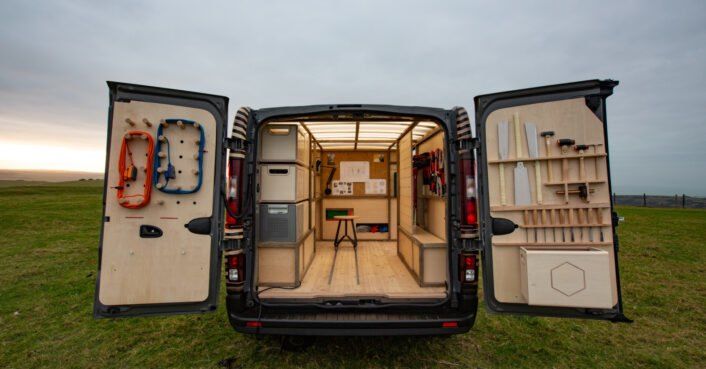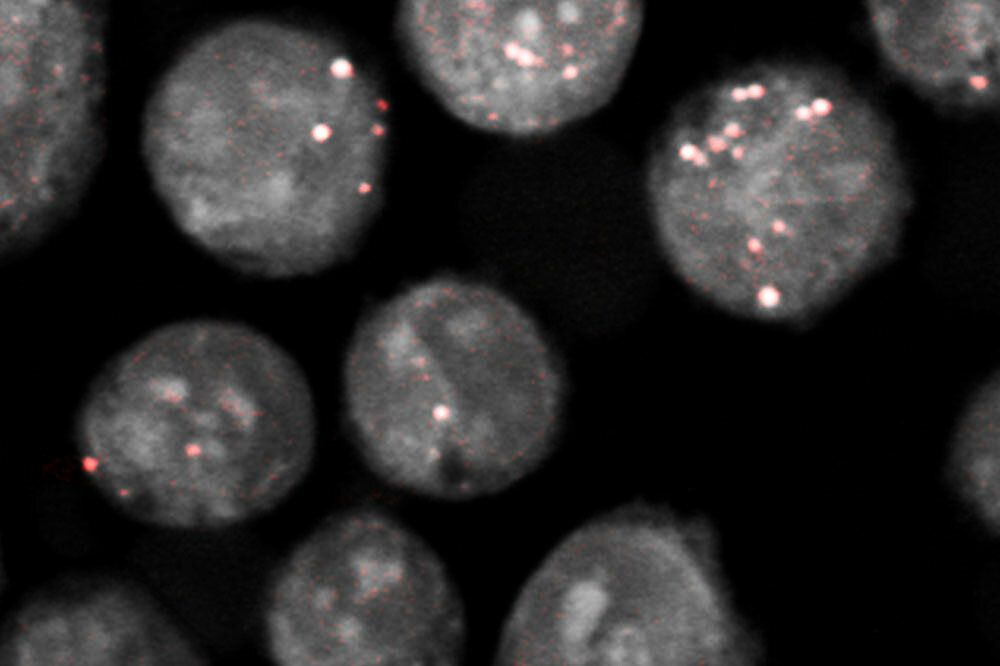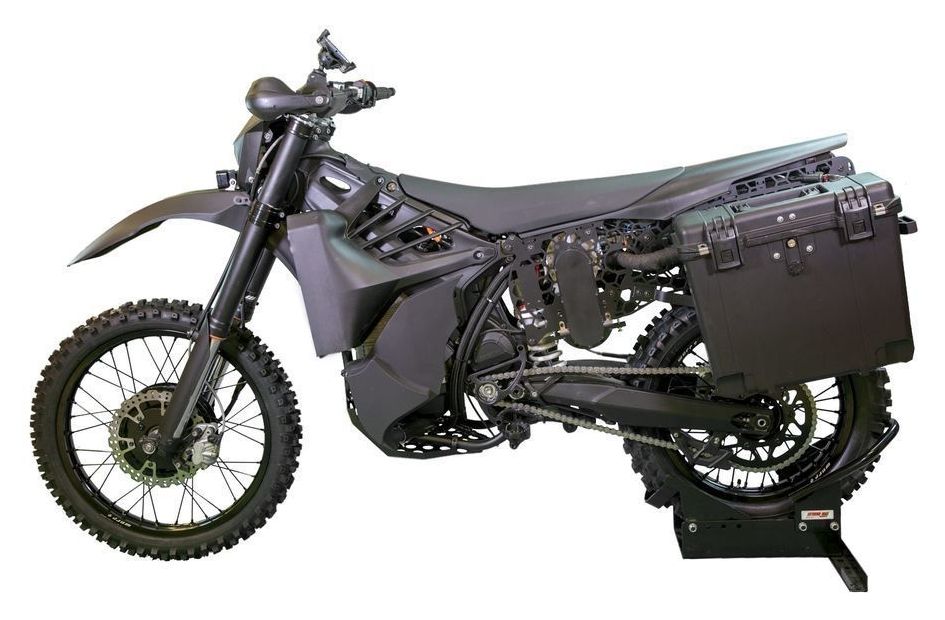Page 8144
Feb 16, 2019
Nissan unveils incredible solar-powered mobile workshop for woodworkers
Posted by Genevieve Klien in categories: sustainability, transportation
Over the years, we’ve seen thousands of unique van conversions, but Nissan has taken the van-loving world by storm with its new NV300 concept van — a mobile workshop for woodworking professionals. The amazing design, which was a collaboration between Nissan and UK-based firm Studio Hardie, is fully-functioning mobile woodworking studio that can be taken off grid, letting wood-loving artisans find inspiration anywhere they choose. What’s more, the van runs on solar power and its tools are powered by an emissions-free, weatherproof power pack made out of recycled electric car batteries.
Feb 16, 2019
Overdue: a US advisory board for research integrity
Posted by Derick Lee in category: habitats
Building a culture of quality and integrity requires conversations across the scientific enterprise. Science is a complex ecosystem of funders, journals, academic administrators, scientific societies and researchers — the latter group including principal investigators, staff scientists, postdocs and graduate students. The interests of each group conflict as often as they overlap, and interactions tend to be stratified and constrained. Institutional presidents sit on working groups with each other but not with research-integrity officers. These officers attend conferences with each other, but not with faculty advisers and bench scientists. Journal editors meet scientists and other editors, but not institutional officers, on whom they rely for investigation when concerns about manuscripts arise.
Research needs an authoritative forum to hash out collective problems, argue C. K. Gunsalus, Marcia K. McNutt and colleagues. Research needs an authoritative forum to hash out collective problems, argue C. K. Gunsalus, Marcia K. McNutt and colleagues.
Feb 15, 2019
Researchers discover a weakness in a rare cancer that could be exploited with drugs
Posted by Paul Battista in categories: biotech/medical, life extension
Cancer cells are, in some respects, impressive: They can grow relentlessly, sidestep the aging process by becoming immortal, and evade the immune system’s persistent attacks. But in the process of acquiring such superpowers, the cells must occasionally relinquish other, more mundane skills—including the ability to produce certain nutrients.
Researchers at The Rockefeller University now announce the discovery of a rare tumor type that is unable to synthesize cholesterol, a molecule without which cells can’t survive.
“These cells become dependent on taking up cholesterol from their environment, and we can use this dependency to design therapies that block cholesterol uptake,” says Kivanç Birsoy, the Chapman Perelman Assistant Professor, who reports the findings in Nature.
Feb 15, 2019
Special forces are getting a stealth motorcycle that’s silent and deadly
Posted by Quinn Sena in categories: sustainability, transportation
Feb 15, 2019
Brain discovery may explain mysterious cell death in Alzheimer’s, Parkinson’s
Posted by Quinn Sena in categories: biotech/medical, genetics, neuroscience
Scientists at the University of Virginia School of Medicine have identified a potential explanation for the mysterious death of specific brain cells seen in Alzheimer’s, Parkinson’s and other neurodegenerative diseases.
The new research suggests that the cells may die because of naturally occurring gene variation in brain cells that were, until recently, assumed to be genetically identical. This variation – called “somatic mosaicism” – could explain why neurons in the temporal lobe are the first to die in Alzheimer’s, for example, and why dopaminergic neurons are the first to die in Parkinson’s.
“This has been a big open question in neuroscience, particularly in various neurodegenerative diseases,” said neuroscientist Michael McConnell of UVA’s Center for Brain Immunology and Glia, or BIG. “What is this selective vulnerability? What underlies it? And so now, with our work, the hypotheses moving forward are that it could be that different regions of the brain actually have a different garden of these [variations] in young individuals and that sets up different regions for decline later in life.”
Continue reading “Brain discovery may explain mysterious cell death in Alzheimer’s, Parkinson’s” »
Feb 15, 2019
The ‘Zombie Deer Virus’ Has Hit 24 US States
Posted by Quinn Sena in categories: biotech/medical, neuroscience
The so-called “zombie disease” has been reported in deer, elk, and moose across 24 US states, according to a new warning by the US Centers for Disease Control and Prevention (CDC).
As of January 2019, at least 251 counties across the US, from northern Montana to southern Texas, have reported CWD in free-ranging cervids, members of the deer family. Farther afield, there are similar concerns for reindeer in Norway, Finland, and, to a lesser extent, South Korea.
Scientifically known as chronic wasting disease (CWD), the contagious neurological disease gets its sensational nickname because of its effect on the brain of cervids, including North American elk or wapiti, red deer, mule deer, black-tailed deer, white-tailed deer, sika deer, reindeer, and moose. Deer that have been struck with the disease suffer from drastic weight loss, abnormal behavior, stumbling, drooling, lack of coordination, aggression, excessive thirst, and a fear of others.
Continue reading “The ‘Zombie Deer Virus’ Has Hit 24 US States” »
Feb 15, 2019
NASA heading back to Moon soon, and this time to stay
Posted by Quinn Sena in category: space travel
NASA is accelerating plans to return Americans to the Moon, and this time, the US space agency says it will be there to stay.
Jim Bridenstine, NASA’s administrator, told reporters Thursday that the agency plans to speed up plans backed by President Donald Trump to return to the moon, using private companies.
“It’s important that we get back to the moon as fast as possible,” said Bridenstine in a meeting at NASA’s Washington headquarters, adding he hoped to have astronauts back there by 2028.
Feb 15, 2019
Are birds using quantum entanglement to navigate?
Posted by Quinn Sena in category: quantum physics
Feb 15, 2019
How quantum terrorists could bring down the future internet
Posted by Quinn Sena in categories: internet, quantum physics, terrorism
Malicious actors could exploit the laws of quantum mechanics to destroy quantum information on a global scale, say physicists.


















